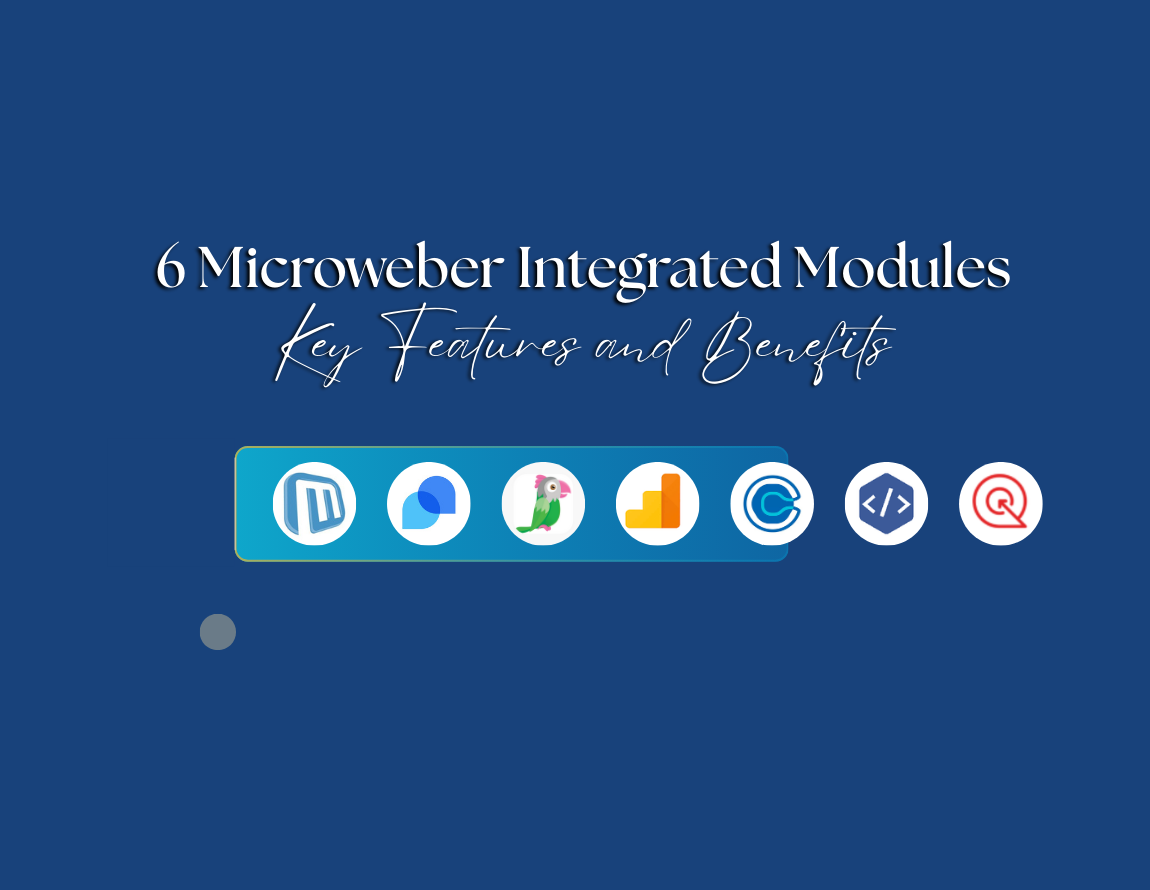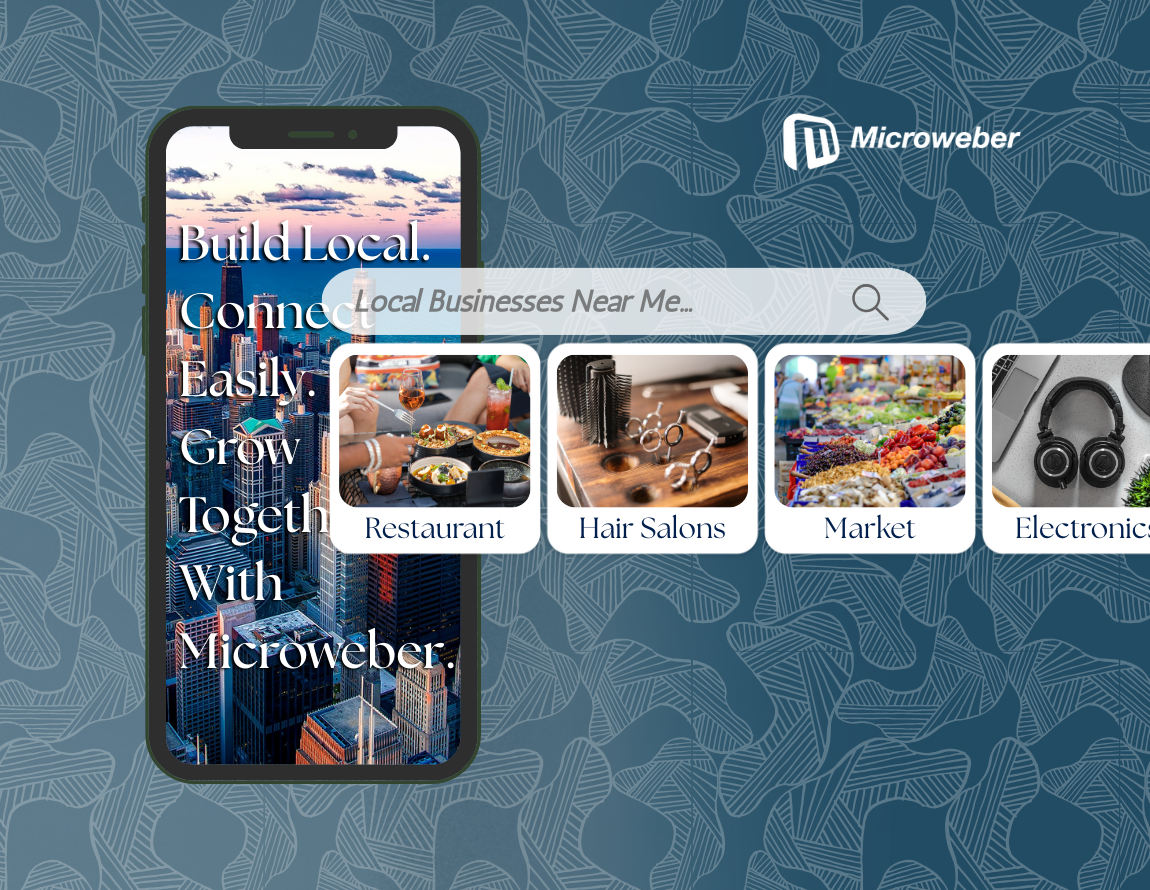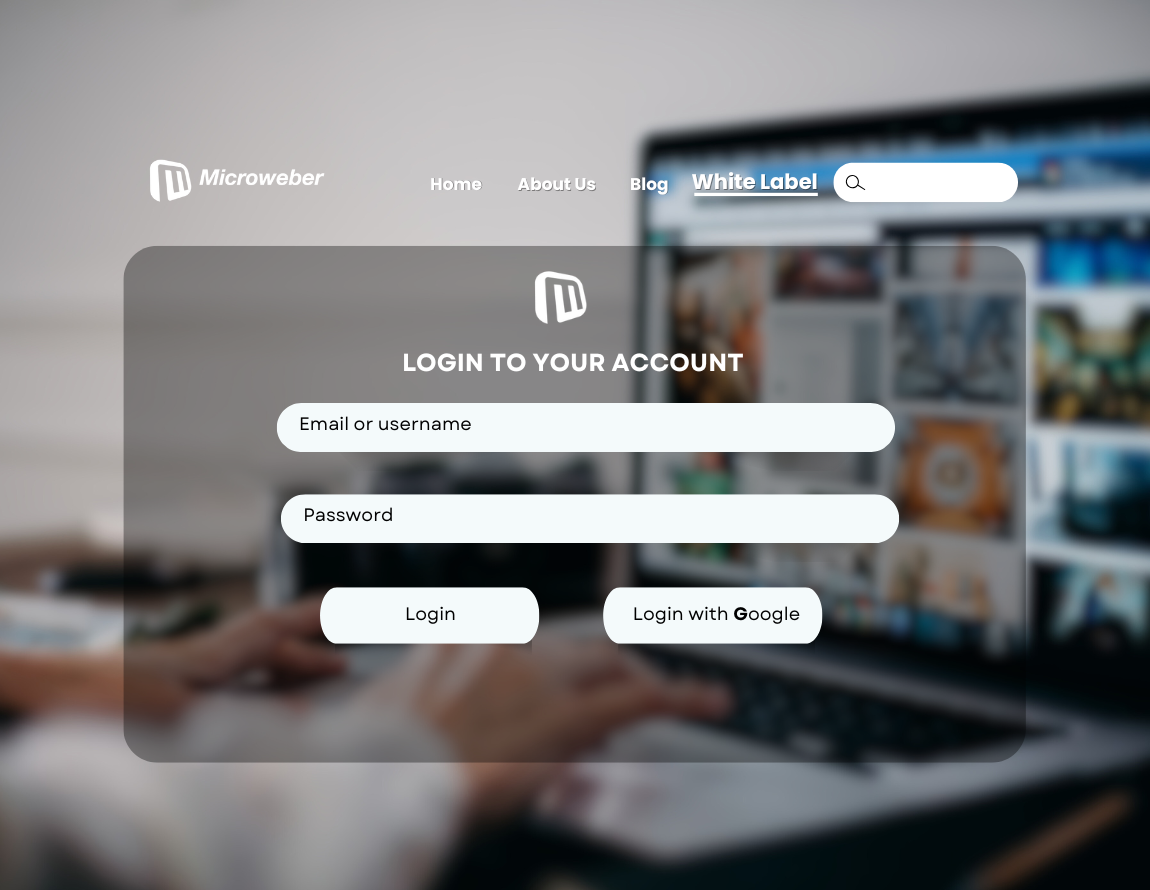10 Custom Integrations for the Best Open-Source Multi-Vendor Platform
Posted on: December 20, 2024 Updated on: December 20, 2024 by Nada Allam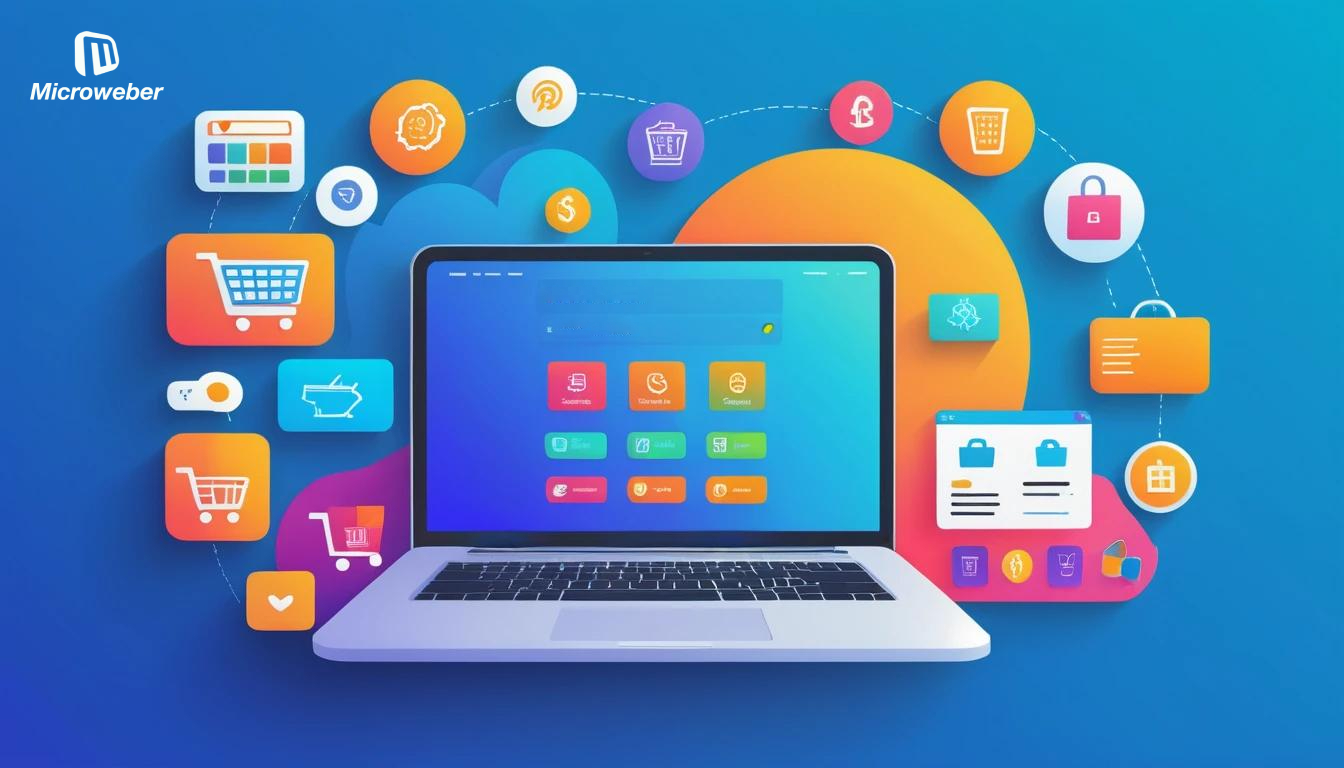 Microweber is one of the leading solutions in the world of open-source platforms. It smoothly combines user-friendliness with great adaptability. Designed to take multi-vendor e-commerce to the next level, it provides a solid yet customizable backbone for building a marketplace.
Microweber is one of the leading solutions in the world of open-source platforms. It smoothly combines user-friendliness with great adaptability. Designed to take multi-vendor e-commerce to the next level, it provides a solid yet customizable backbone for building a marketplace.
Priced attractively and replete with a host of features, Microweber would be appealing to businesses wanting to provide a platform that caters to both vendors and buyers. Its ability to integrate the essential tools ensures vendors can easily manage their operations, while buyers enjoy a hassle-free shopping experience.
For those who want to extend the e-commerce possibilities of Microweber, here is a suite of integrations that will turn basic functionalities into a full marketplace system. Below, we explore ten powerful integrations that make Microweber the perfect choice for multi-vendor success.
1. Third-Party Payment Gateways
 Payment gateways are important for the smooth processing of transactions between a vendor and a customer. That is the backbone of any e-commerce operation. Microweber comes integrated with a variety of third-party trusted gateways, like PayPal, Stripe, and others, for flexibility and security to both vendors and buyers.
Payment gateways are important for the smooth processing of transactions between a vendor and a customer. That is the backbone of any e-commerce operation. Microweber comes integrated with a variety of third-party trusted gateways, like PayPal, Stripe, and others, for flexibility and security to both vendors and buyers.
These integrations enable a business to accept multiple currencies for payment, targeting both the local and international markets. Custom payment gateway integrations can be provided according to various business models and assure safety, efficiency, and smoothness in payment processing.
Offering choices will let businesses offer their customers a seamless and smooth checkout experience that is in line with driving customer satisfaction and trust.
2. Vendor Dashboard
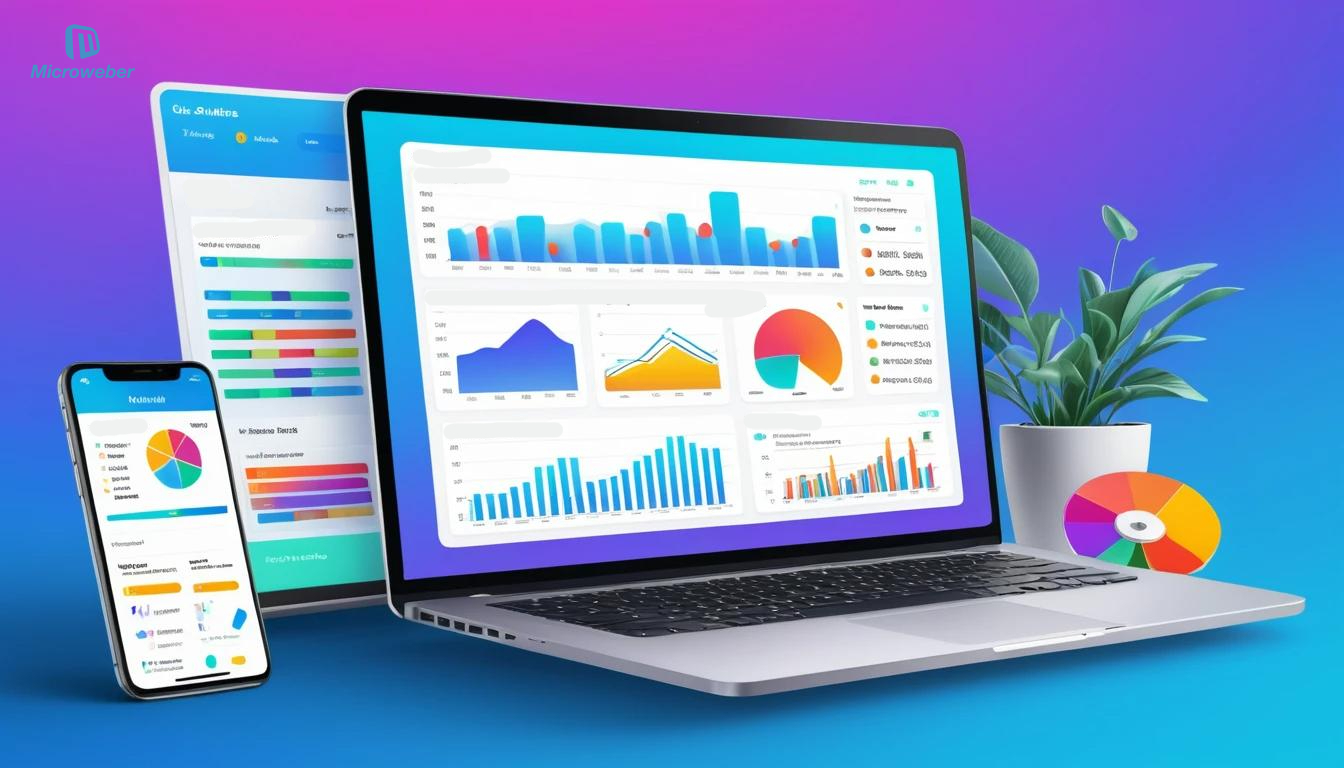 An intuitive and customizable vendor dashboard is important for the daily management of any e-commerce business. In Microweber, vendors will have a personalized dashboard where they can easily manage all their tasks.
An intuitive and customizable vendor dashboard is important for the daily management of any e-commerce business. In Microweber, vendors will have a personalized dashboard where they can easily manage all their tasks.
Vendors can manage their product listing and sales performance, study customer behavior, and access analytics in real-time. This gives vendors a unified interface from where they can take full control of running and growing their businesses by equipping them with the insights they need to make informed decisions.
The vendor dashboard can be customized to display only the data and tools that each vendor needs or wants to see, enabling them to be organized and productive.
3. Multi-Currency Support
 In today's global market, supporting multiple currencies is paramount in attracting and retaining international customers. In Microweber, this is supported to ensure the smoothness of transactions in a seamless manner across different regions.
In today's global market, supporting multiple currencies is paramount in attracting and retaining international customers. In Microweber, this is supported to ensure the smoothness of transactions in a seamless manner across different regions.
With custom integrations, immediate currency conversion is allowed so that vendors can show prices in the customer's favorite currency, avoiding confusion and offering them a pleasant shopping experience.
It instills trust and convenience for both buyers and sellers, therefore fostering global commerce and giving a competitive advantage in international markets.
4. Shipping and Logistics Modules
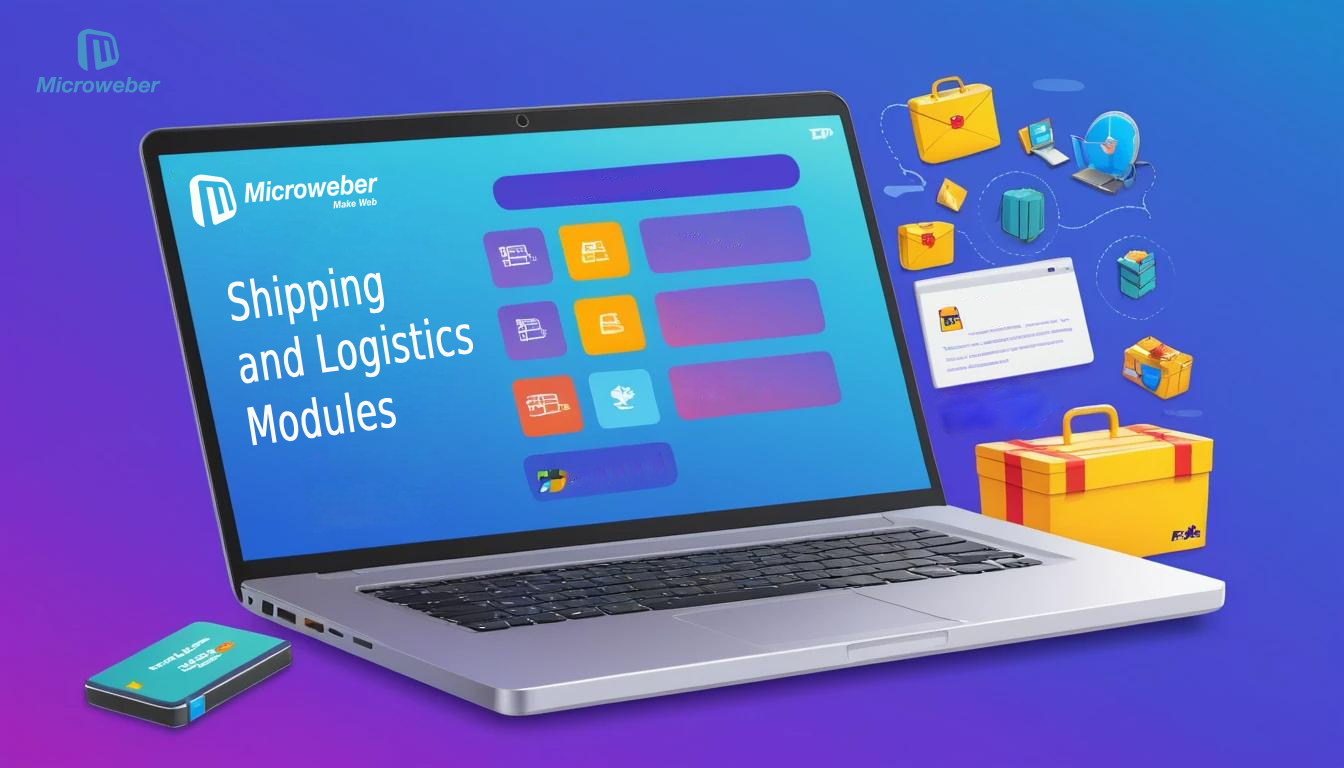 Efficient shipping and logistics are the major concerns of every e-commerce platform. In Microweber, this customizable framework supports the integration of third-party shipping APIs, including the industry leaders FedEx and DHL.
Efficient shipping and logistics are the major concerns of every e-commerce platform. In Microweber, this customizable framework supports the integration of third-party shipping APIs, including the industry leaders FedEx and DHL.
These integrations thus enable vendors to calculate the shipping rates automatically, track orders in real-time, and manage logistics more efficiently. This way, vendors can offer a seamless shipping experience to customers with automated order fulfillment and logistics management.
In addition, customers enjoy the tracking ability of their orders, improving their satisfaction and reducing the number of inquiries on the customer service desk about shipments.
5. Advanced Product Catalog Management
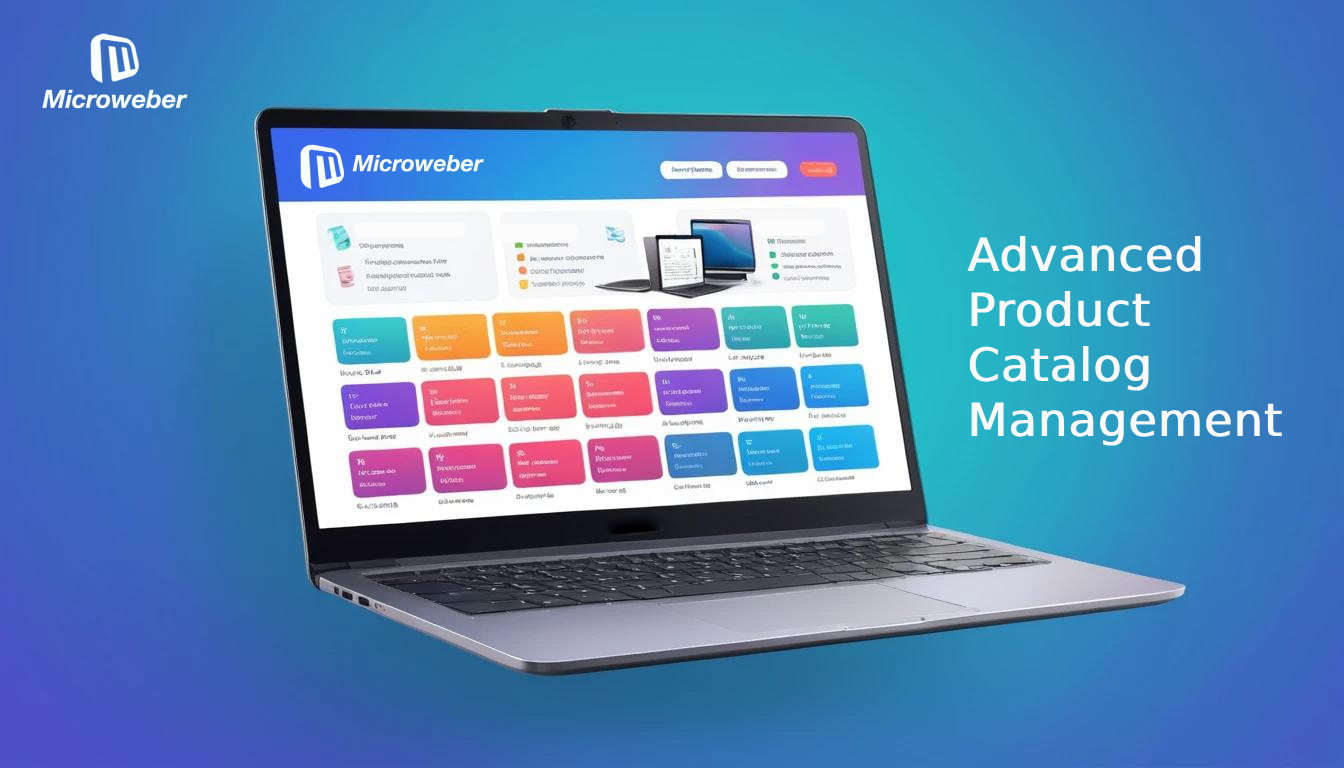 Efficient product catalog management is a must for every business dealing with extensive inventories. Advanced product management in Microweber simplifies the organization of product listings. Vendors can handle bulk product upload, and product variants like size, color, material, etc., and create category-specific attributes for each product.
Efficient product catalog management is a must for every business dealing with extensive inventories. Advanced product management in Microweber simplifies the organization of product listings. Vendors can handle bulk product upload, and product variants like size, color, material, etc., and create category-specific attributes for each product.
This functionality lets the vendors manage a sorted catalog for better customer navigation and, thus, buying. Its flexibility supports scalability for enterprises to handle larger inventories more efficiently without any risk of errors or failure in smooth operations.
6. Reviews and Rating System
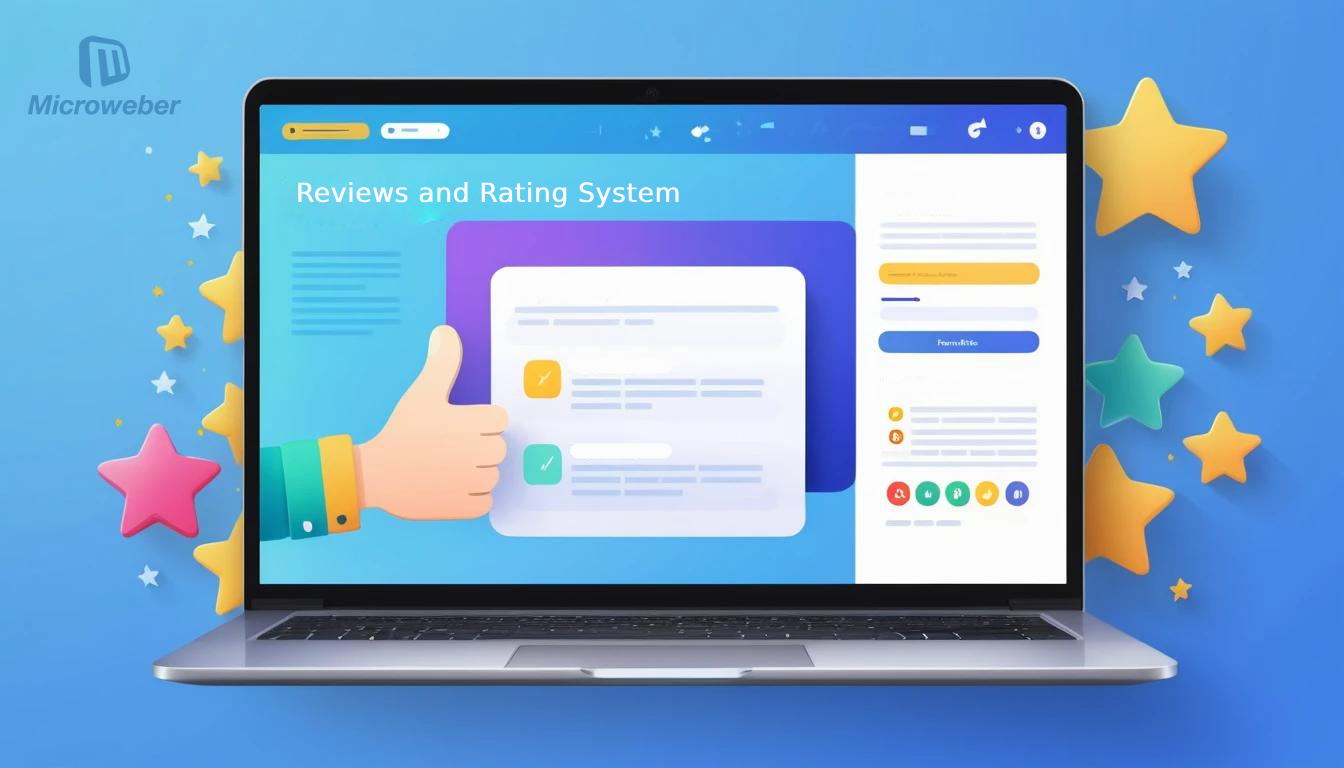 Customer reviews and ratings are considered a vital part of building trust and credibility in online marketplaces. Microweber does support integrating review and rating systems, which one can customize. This feature enables customers to leave reviews and ratings for products and vendors.
Customer reviews and ratings are considered a vital part of building trust and credibility in online marketplaces. Microweber does support integrating review and rating systems, which one can customize. This feature enables customers to leave reviews and ratings for products and vendors.
This transparency serves to help build trust for future buyers, who can, based on other people's experiences, make informed purchases.
A strong review system also gives insight to the vendors themselves for improving product offerings and customer service.
In this way, vendors and buyers alike profit from a more engaging and trustworthy shopping experience.
7. User Authentication and Role Management
 Effective user authentication and role management are at the core of security and enhanced user experiences. Microweber's platform has a fully functional user authentication system that could be extended to define different roles among vendors, administrators, and buyers.
Effective user authentication and role management are at the core of security and enhanced user experiences. Microweber's platform has a fully functional user authentication system that could be extended to define different roles among vendors, administrators, and buyers.
By setting certain permissions for each user role, Microweber ensures that individuals have access only to the features relevant to their responsibilities.
It targets access to improve security through access only when and to sensitive data, while this improves workflow efficiency, providing ease of access to the various tools vendors and administrators need with minimal distraction.
8. Marketing Tools Integration
 Effective marketing tools drive vendor growth and increase sales on the platform. Microweber allows the use of a wide range of marketing tools, from email campaign management to creating coupons to supporting affiliate programs.
Effective marketing tools drive vendor growth and increase sales on the platform. Microweber allows the use of a wide range of marketing tools, from email campaign management to creating coupons to supporting affiliate programs.
These tools will enable vendors to promote their products to their target audience, improve customer retention, and increase traffic to their stores.
By offering a variety of promotional tools that can be customized, Microweber also allows vendors to create and implement personalized marketing strategies that improve sales and increase brand awareness across multiple platforms.
9. Analytics and Reporting
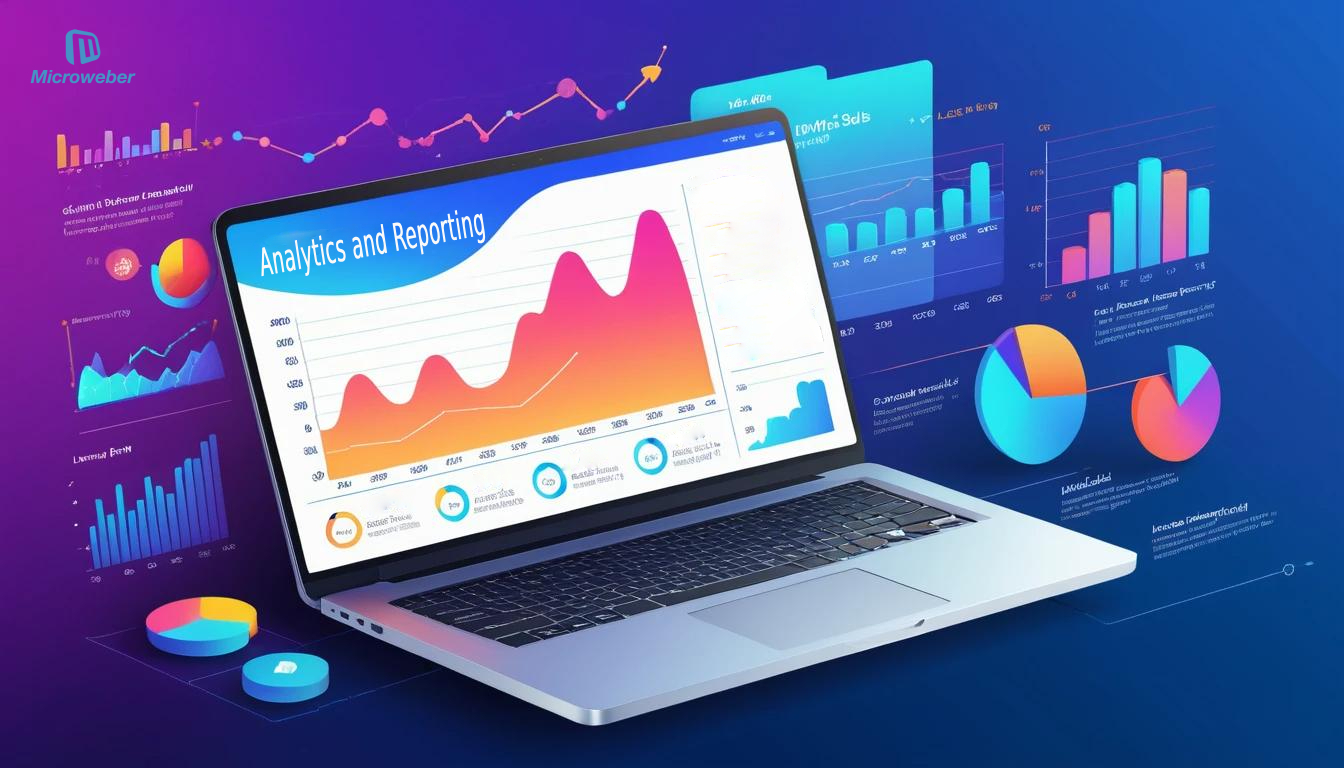 Data-driven insights lie at the heart of business optimization. Integrate Microweber with powerful analytics tools like Google Analytics and provide vendors with comprehensive reports about sales trends, inventory levels, and customer behavior.
Data-driven insights lie at the heart of business optimization. Integrate Microweber with powerful analytics tools like Google Analytics and provide vendors with comprehensive reports about sales trends, inventory levels, and customer behavior.
These insights also assist the vendor in making more informed decisions, adjusting the price, optimizing inventory, and enhancing the customer experience.
Key performance indicators can be set to focus on custom reporting dashboards, which will enable the vendor firm to further develop its strategies, enhance products, and achieve maximum profitability.
10. SEO Optimization
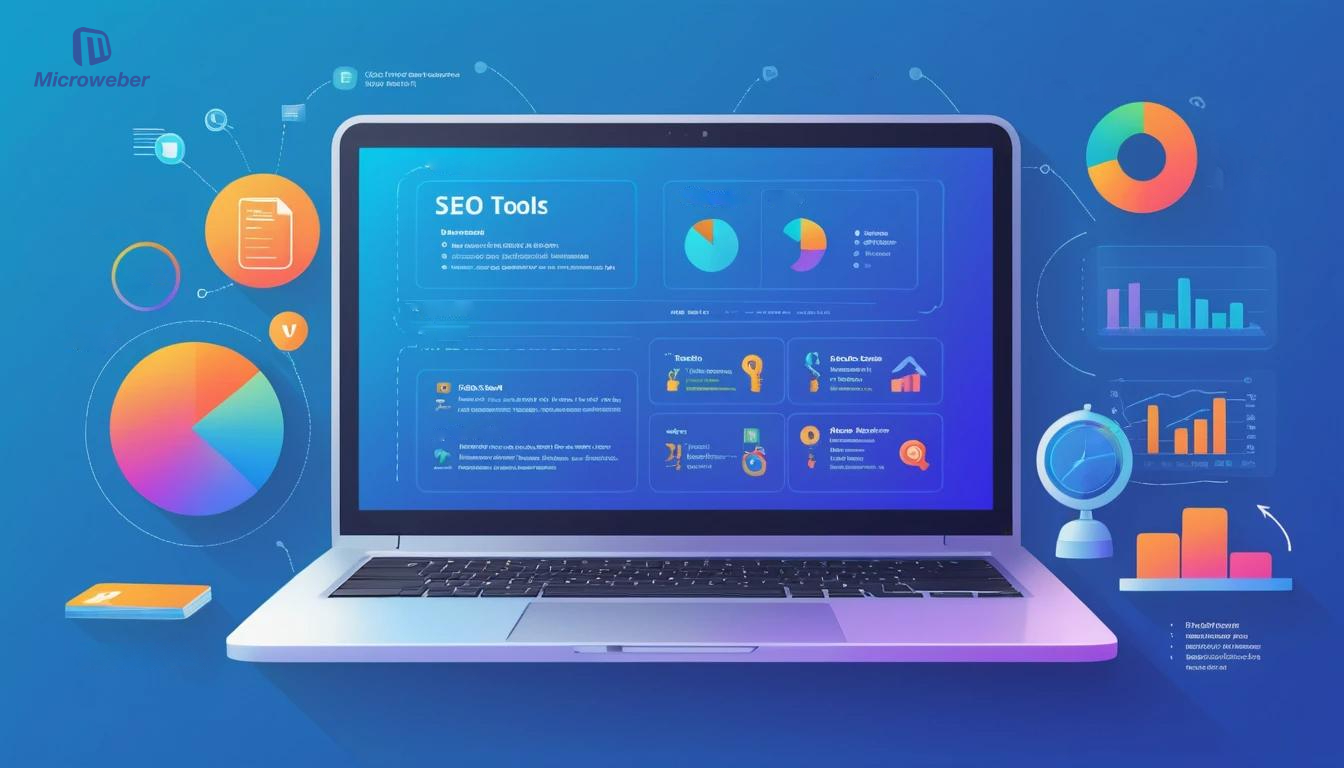 SEO plays an important role in driving organic traffic to the e-commerce platform. Advanced SEO plugins and tools integrated into Microweber will enable the vendors to optimize their product listings for better search engine rankings.
SEO plays an important role in driving organic traffic to the e-commerce platform. Advanced SEO plugins and tools integrated into Microweber will enable the vendors to optimize their product listings for better search engine rankings.
Vendors can enhance the visibility of their products in search results by optimizing product titles, descriptions, keywords, and other SEO parameters to attract potential customers.
Microweber helps improve product discoverability through its SEO tools, thus improving online traffic flow and increasing conversion rates that help the growth and success of the platform.
Conclusion
Microweber is an exceptional solution for large enterprises who intend to set up and scale their multivendor e-commerce sites. Offering high functionality for integrations and customization, it makes it easier for the vendors to work seamlessly while boosting customer experiences and growing their sales.
From seamless payment processing to vendor dashboards, from advanced analytics to SEO tools, Microweber covers every aspect of an online marketplace.
Ready to give your e-commerce business a fresh start with Microweber? Explore the possibilities today and build the platform that works for you!
FAQs
What is a multi-vendor platform?
A multi-vendor platform is an e-commerce solution that allows several autonomous vendors to sell their items or services through one particular website.
Each Vendor maintains his inventory, sets prices, and manages their order while the platform owner manages the marketplace.
What is the difference between a single vendor and a multi-vendor?
A single-vendor platform provides access to one seller, the seller selling to the customer, while a multi-vendor platform is an integrated platform hosting multiple vendors for selling their products or services to a common customer.
Multi-vendor sites offer a wider product assortment and serve a larger clientele.
What is a multi-vendor network?
A multi-vendor network can be defined as a network of various third-party vendors connected through one host platform.
It enables collaboration and competition among sellers while providing buyers with diverse options and streamlined purchasing experiences.


